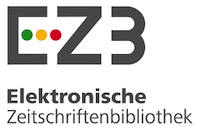A business simulation experience for the development of profesional competencies
Una experiencia de simulación empresarial para el desarrollo de competencias profesionales
##plugins.themes.bootstrap3.article.main##
Business simulators are formative and educative tools that allow us to transmit contents and foster skills and competencies in business management. In English they are known as business games, which at the same time are belong to the category of serious games. The aim of this study is to analyze the potential of a business simulator, not just as a formative tool to promote learning, but also to develop skills and abilities. In this sense, the methodology used is based on the analysis of a concrete successful experience in the use of a simulator for formation as a dynamizing element and a catalyst for working on competencies in an e-learning setting. The paper will detail how these competencies can be worked on in each of the decision making stages of the business simulator “Fórmula i”. The user has to manage a formula 1 motor-racing team, trying to obtain the best sporting results possible by making a series of strategic and operative decisions. Finally, through a self-designed econometric regression model, the results obtained in the first implementation are analyzed to evaluate the influence of this methodology on the evaluation of competencies management for human resources in companies.
Downloads
##plugins.themes.bootstrap3.article.details##
Abt, C. C. (1987). Serious games. Lanham: University Press of America.
Arquero, J. L. (2000). Capacidades no técnicas en el perfil profesional en contabilidad: Las opiniones de docentes y profesionales. Revista Española de Financiación y Contabilidad, 29(103), 149-172.
Bates, I., & Atkins, D. (2003). Management of Insurance Operations. London: Global Professional Publishing.
Congreso de los Diputados de España. (2002). Ley Orgánica 5/2002, de 19 de junio, de las cualificaciones y de la formación profesional. Madrid: Agencia Estatal Boletín Oficial del Estado. Recuperado de http://www.boe.es/buscar/pdf/2002/BOE-A-2002-12018-consolidado.pdf
Federation of American Scientists. (2006). Harnessing the Power of Video Games for Learning. En Proceedings of the Summit on Educational Games. Washington. Recuperado de http://www.fas.org/gamesummit/Resources/Summit%20on%20Educational%20Games.pdf
Greene, W. H. (2002). Econometric analysis (5th ed.). New Jersey: Prentice Hall.
Kearney, P. & Pivec, M. (2007). Immersed and how? That is the question. En Games in Action Conference. Gothenburg, Sweden.
Lacasa, P. (2011). Los videojuegos: aprender en mundos reales y virtuales. Madrid: Morata.
Malone, T. W., & Lepper, M. R. (1987). Making learning fun: a taxonomy of intrinsic motivations for learning. En R. E. Snow & M. J. Farr (Eds.), Aptitude, Learning, and Instruction. Conative and Affective Process Analyses (vol. 3). Hillsdale, New Jersey: Lawrence Erlbaum Associates.
Periáñez, I., Gómez, P. M., Luengo, M. J., Pando, J., de la Peña, J. I., & Villalba, F. J. (2009). Estudio para la detección de las competencias profesionales de un economista desde la perspectiva del empleador. Madrid: Consejo General de Colegios de Economistas de España.
Pivec, P. & Pivec, M. (2011). Digital Games: changing education, one raid at a time. International Journal of Game-Based Learning, 1(1), 1-18.
https://doi.org/10.4018/ijgbl.2011010101
Project Tomorrow. (2008). Speak Up 2007 for students: teachers, parents & school leaders. Irvine: Project Tomorrow. Recuperado de http://www.tomorrow.org/docs/national findings speak up 2007.pdf.
Rajan, A., Van Eupen, P. & Chapple, K. (1999). Skills in financial services: insurance, banking & building societies. Kent: Centre For Research In Employment & Technology In Europe.
Reese, D. D. (2007). First steps and beyond: serious games as preparation for future learning. Journal of Educational Multimedia and Hypermedia, 16(3), 283-300.


































